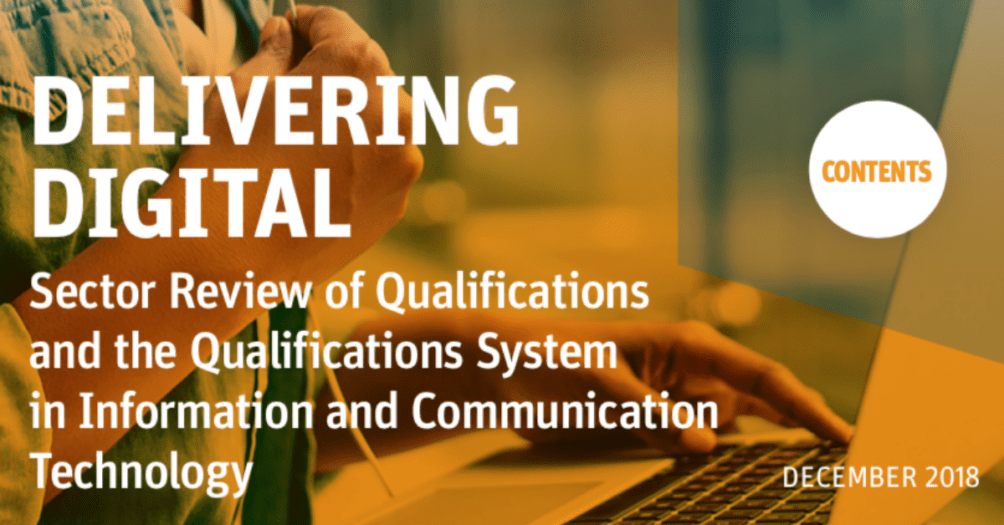ICT qualifications used in schools and further education colleges are outdated and need fundamental reform.
That’s the conclusion reached by regulator Qualifications Wales, who recommend re-designing Information and Communication Technology qualifications in Wales.
The review discovered that ICT qualifications have not kept pace with the fast-moving digital sector. It recommends the development of new GCSE and A level Digital Technology qualifications.
It also revealed that much of the content currently used in qualifications is out of date, a lack of money means some schools and colleges can’t afford the latest IT equipment, and the subject is often taught by non-specialists who struggle to keep up with changes in technology.
The Qualifications Wales report, ‘Delivering Digital’, is the culmination of an 18-month review of qualifications in the ICT sector in Wales.
“We conducted 150 interviews with stakeholders, including almost 60 employers working in the sector,” said Gareth Downey, Senior Manager for Vocational Qualifications. “We also took into account the views of more than 1,000 learners to inform our findings.”
Gareth Downey
The review discovered that:
- current qualifications are outdated, with some a decade behind the latest digital developments;
- assessments are often considered irrelevant with written evidence and screenshots the most common way of assessing young people’s digital skills;
- many schools and colleges are using outdated IT equipment and reported that they can’t afford the latest equipment due to a lack of money;
- ICT isn’t prioritised in some schools, with a high number of non-specialists teaching the subject.
“It’s virtually impossible to conduct our day-to-day lives without accessing digital information in one form or another, from ordering the weekly shop to booking a holiday or applying for a job.”
Gareth Downey
“Yet the qualifications currently available for the digital generation haven’t kept pace with technological developments, and as a result have become outdated.”
“Digital tasks such as using software packages, sending emails, and accessing information on the internet are now part of the everyday life.”
“Most young people already have these skills long before they start studying the current qualifications, so these topics aren’t engaging or challenging for young people.”

The ‘Delivering Digital’ report recommends:
- developing new GCSE and A level Digital Technology qualifications;
- ensuring that the new qualifications developed for use in the Digital Route T levels in England are available to be taken by learners in Wales;
- reviewing any ICT-related qualifications submitted by awarding bodies to ensure they are up-to-date and relevant;
- monitoring new vocational ICT qualifications used in apprenticeship frameworks.
“We’ve identified short-term measures that will address the immediate issues we’ve uncovered, along with a longer-term plan to develop new Digital Technology qualifications fit for the digital generation,”
said Cassy Taylor, Associate Director for Vocational Qualifications.
“We’ll take action in two phases. Firstly, we’ll address the issues raised during our sector review to improve the current qualifications.”
“The second phase will look at developing new Digital Technology qualifications which engage young people and reflect the fast-moving digital world.”
“Our recommendations, coupled with enhanced teacher training, will address these issues and help close the digital skills gap that has been identified by employers in Wales.”

Stakeholders who were consulted during the report’s preparation have welcomed its recommendations.
Professor Faron Moller of Swansea University said:
“The pan-Wales Technocamps programme has been working since 2003 to improve the state of ICT and computing education in Wales. It has been particularly successful in addressing the serious gender imbalance in the digital workforce given that ICT and computing remain unattractive subject choices to girls.”
Faron Moller
“New scientifically-rigorous qualifications in Digital Technology which specifically address the technical, social and economic sciences behind the devices with which young people continuously interact is very timely and will undoubtedly be popular to a broad spectrum of young people.”

You can read the whole report here: ITC review 2018 E.pdf
